Introduction
Navigating the recovery journey from addiction is a deeply personal and often complex process, marked by significant milestones and challenges. This article seeks to explore the various stages of addiction recovery, providing insights into what individuals and their loved ones can expect during each phase. Armed with knowledge of these stages, readers can better support themselves or those they care about on the road to long-lasting sobriety.
The Core Stages of Addiction Recovery
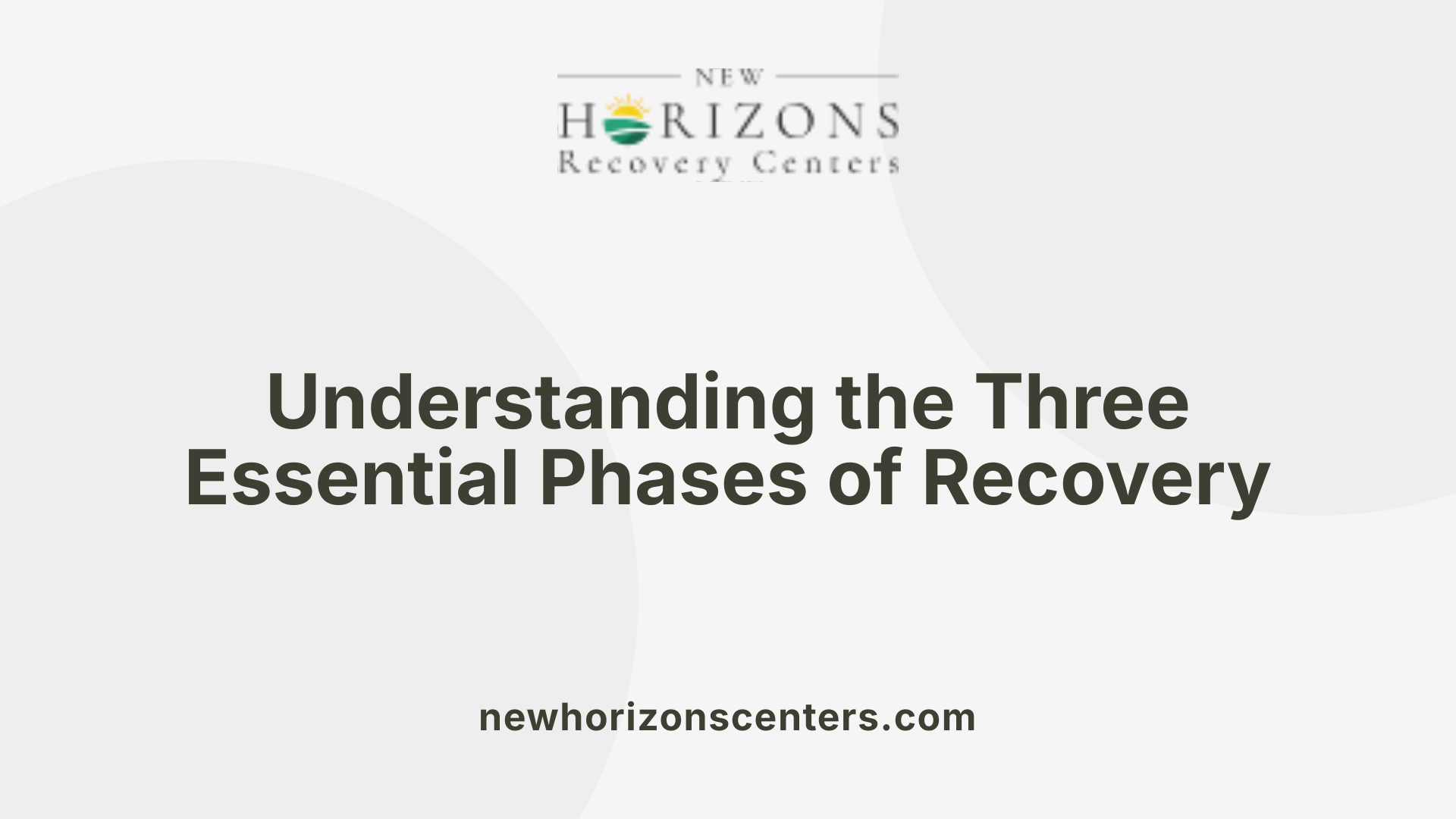
What occurs during the recovery process from addiction?
The journey of addiction recovery is structured around three core stages: abstinence, repair, and growth. Each of these stages serves a distinct purpose and requires different strategies to support lasting recovery.
Abstinence Stage
The abstinence stage kicks off the recovery process immediately after stopping substance use. This pivotal period typically lasts from one to two years and is vital for establishing a new identity as a non-user. During this time, individuals focus on understanding their addiction while learning to cope with cravings. Goals during the abstinence stage often include:
- Acceptance of addiction as a chronic condition.
- Practicing self-care and developing healthy routines.
- Actively participating in self-help groups such as Alcoholics Anonymous (AA).
- Learning coping strategies to manage cravings effectively.
Repair Stage
Following abstinence, the repair stage begins, usually lasting two to three years. This stage involves confronting the damage caused by addiction, such as rebuilding self-esteem and mending relationships that may have suffered. Cognitive-behavioral therapy (CBT) is often employed to help individuals reassess negative thinking patterns and guilt associated with their past behavior. Key focus areas include:
- Healing interpersonal relationships.
- Addressing financial harms caused by addiction.
- Enhancing personal self-care routines.
Growth Stage
The final phase is the growth stage, which commences approximately three to five years after achieving initial abstinence. This stage focuses on ongoing personal development, identifying and repairing negative behavioral patterns, and setting healthy boundaries. Objectives during this period might involve:
- Strengthening skills to prevent relapse.
- Addressing trauma and emotional challenges.
- Contributing positively to others' recovery journeys, which enhances personal fulfillment and community support.
In summary, recovery from addiction is a multifaceted process, reflecting a commitment to continuous improvement and resilience over time.
Exploring the Transtheoretical Model of Change
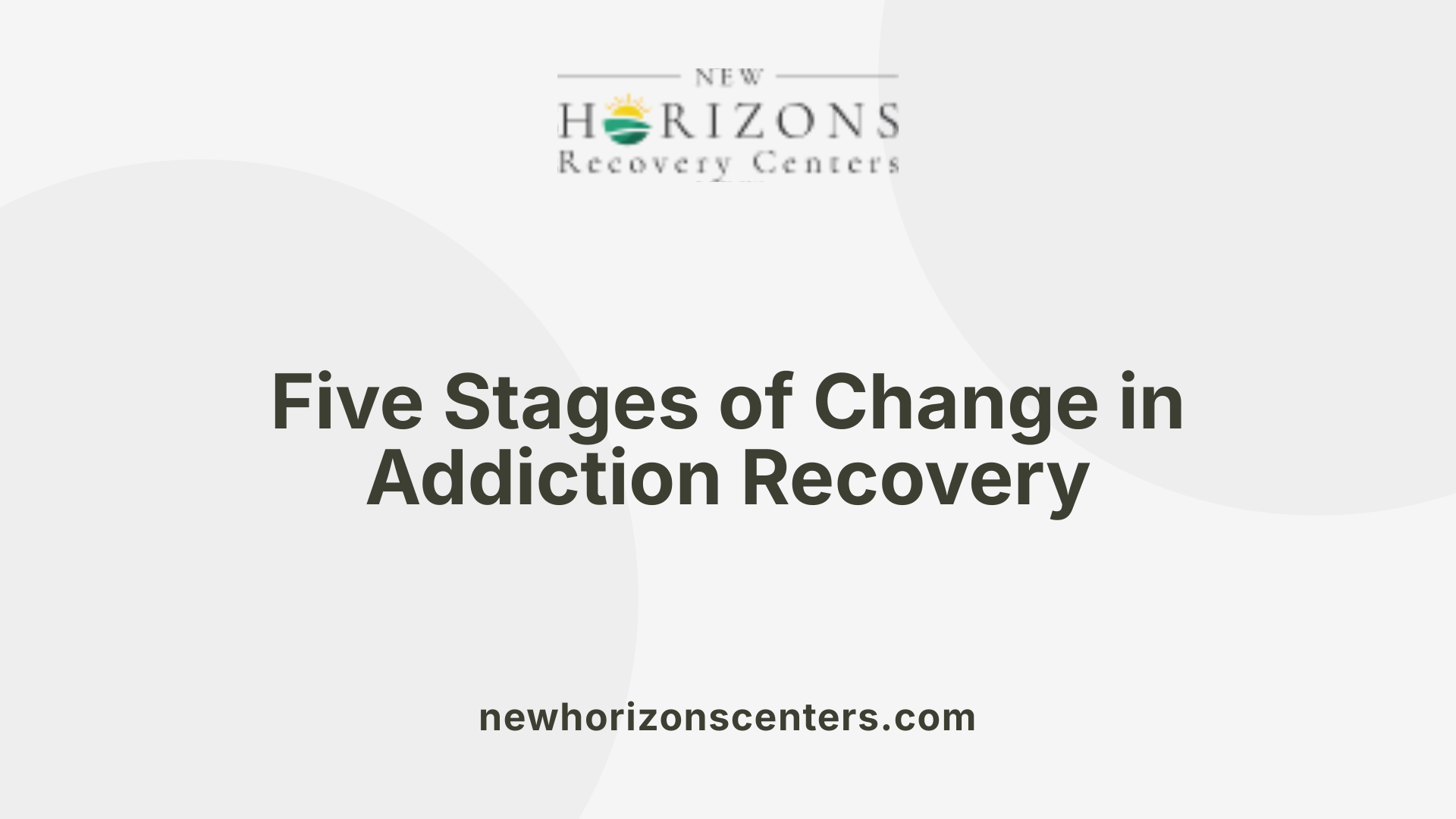
What are the stages of the recovery process from addiction?
The recovery process from addiction is commonly structured around the Transtheoretical Model of Change, which outlines five distinct stages: Precontemplation, Contemplation, Preparation, Action, and Maintenance. Each stage presents its own challenges and requires different strategies.
| Stage | Description | Focus |
|---|---|---|
| 1. Precontemplation | Individuals in this stage are often unaware of their problematic behavior and may deny the addiction's impact. | Recognition of addiction. |
| 2. Contemplation | During this phase, individuals start to acknowledge the existence of their substance use issues and weigh the benefits of change against the costs. | Acknowledgment and weighing options. |
| 3. Preparation | Here, individuals commit to change by making plans, goals, and seeking resources for support in their recovery journey. | Active planning for recovery. |
| 4. Action | This stage involves taking concrete steps toward recovery, such as entering treatment facilities or joining support groups. | Implementing changes and strategies. |
| 5. Maintenance | Focus shifts to sustaining behavioral changes, preventing relapse, and applying learned coping skills. | Long-term sustainability and community support. |
Understanding this model helps individuals identify their current position in the recovery journey and recognize that recovery is a dynamic process. Each stage builds upon the previous one, highlighting the complexity of addiction recovery and the necessity of appropriate intervention strategies for lasting change.
Understanding Emotional and Physical Challenges in Early Sobriety
Early Withdrawal Symptoms
The early stages of sobriety typically involve a period of withdrawal, which can last from a few days to several weeks. Symptoms often begin to manifest between 0 and 15 days after stopping substance use. Common physical withdrawal symptoms include cravings, depression, irritability, and various flu-like signs. The peak of these symptoms usually occurs around the third day and can vary significantly depending on the substance previously used.
Coping with Cravings
During early sobriety, intense cravings are a significant challenge. These cravings can stem from conditioned habits and routines associated with past substance use. Individuals may experience cravings triggered by certain environments, emotions, or social situations. Developing coping strategies is essential; techniques include mindfulness, engaging in physical activity, and avoiding triggers. Participation in support groups can also provide accountability and encouragement during this critical phase of recovery.
Emotional Fluctuations
In addition to physical withdrawal symptoms, emotional challenges are prevalent during the early recovery period. Individuals may experience mood swings, anxiety, sadness, and heightened irritability. These emotional fluctuations can be disorienting and may lead to increased relapse risks if not managed properly. Establishing a routine, seeking mental health support, and practicing self-care can help stabilize emotions. Over time, many individuals report improvements in their mood and emotional resilience as they continue their recovery journey.
Navigating the Challenges of the Abstinence Stage
Coping Mechanisms for Cravings
During the abstinence stage, individuals face intense cravings as they adjust to life without the substance. Developing effective coping mechanisms is critical to manage these urges. Some strategies include:
- Mindfulness Techniques: Practicing mindfulness such as meditation can help individuals stay present and reduce anxiety associated with cravings.
- Physical Exercise: Engaging in physical activity releases endorphins, which can improve mood and distract from cravings.
- Communication: Stay connected with support groups or trusted friends to discuss feelings and receive encouragement.
Establishing a Routine
Creating a structured daily routine is essential for individuals in recovery. A routine not only provides stability but also aids in developing healthy habits. Key aspects include:
- Regular Sleep Schedule: Prioritize good sleep hygiene to help regulate mood and energy levels.
- Healthy Eating Habits: Focus on nutrition to bolster physical and mental well-being.
- Scheduled Activities: Incorporate enjoyable activities and hobbies to fill time previously used for drinking or using substances, thus reducing boredom that could lead to relapse.
By integrating these coping strategies and routines, individuals can better navigate the challenges of the abstinence stage.
The Repair Stage: Rebuilding Life Post-Addiction
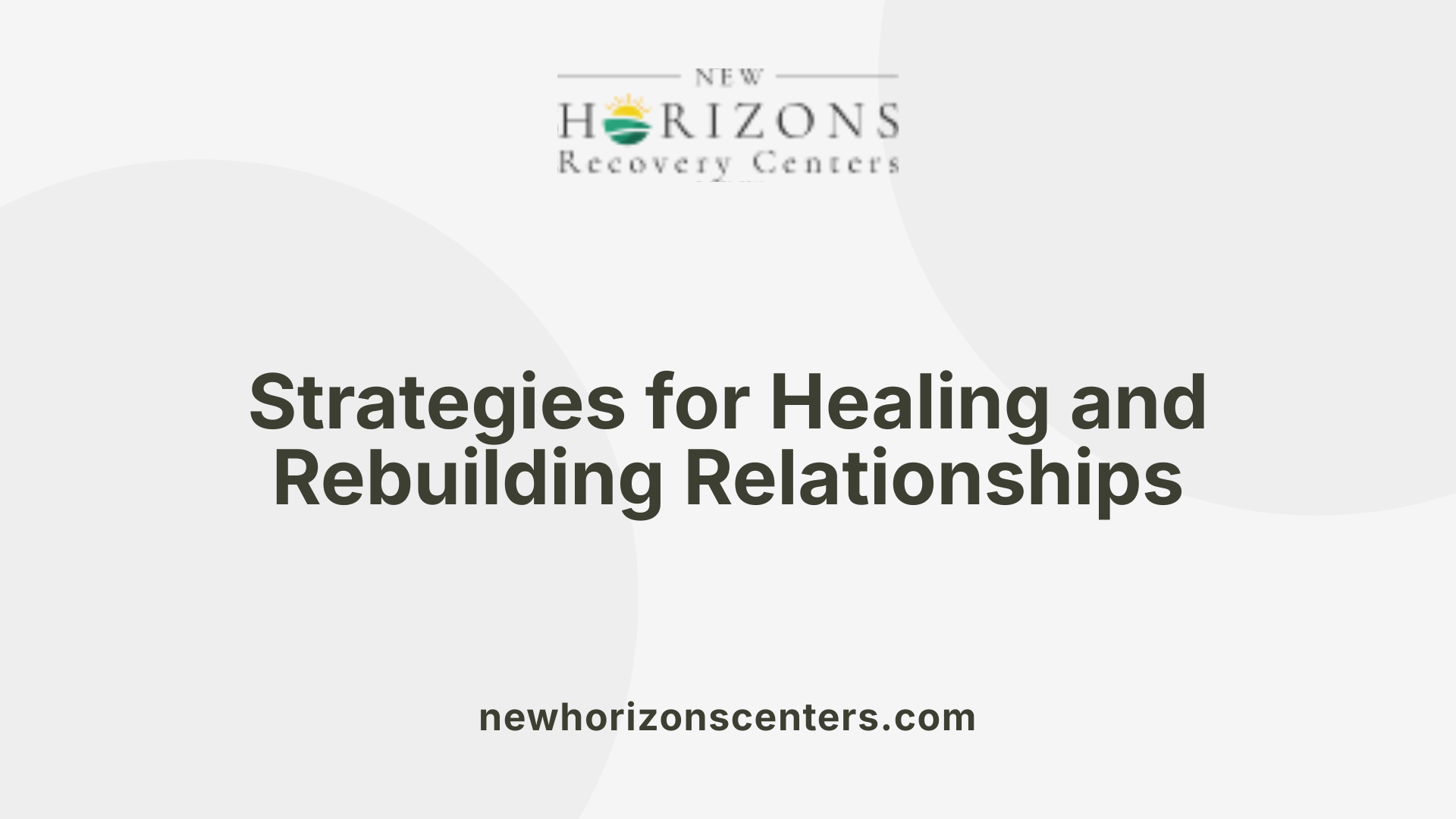
What Is Included in the Repair Stage?
The repair stage typically spans two to three years following the initial abstinence phase. During this critical time, individuals focus on mending the damage inflicted by addiction on their lives, particularly their self-esteem and interpersonal relationships.
How Does Cognitive-Behavioral Therapy Aid Recovery?
A popular method during this stage is cognitive-behavioral therapy (CBT). It helps individuals identify and change negative thought patterns related to their addiction and associated feelings of guilt. CBT empowers them by promoting healthier coping mechanisms, effectively allowing them to face and navigate through underlying issues.
Strategies for Rebuilding Self-Esteem and Relationships
Rebuilding self-esteem involves self-reflection and self-care practices. It's essential to acknowledge past mistakes while fostering personal growth. Relationships need to be reestablished too; individuals may need to make amends and rebuild trust with loved ones. Engaging in supportive communities and self-help groups can further strengthen these connections, providing an invaluable network conducive to healing.
| Focus Areas | Duration | Therapeutic Approaches |
|---|---|---|
| Self-Esteem Improvement | 2-3 years | Cognitive-Behavioral Therapy |
| Relationship Restoration | Ongoing | Support Groups, Family Therapy |
| Personal Growth | Continuous | Self-Care and Reflection |
Growth Stage: Cultivating a Resilient Lifestyle
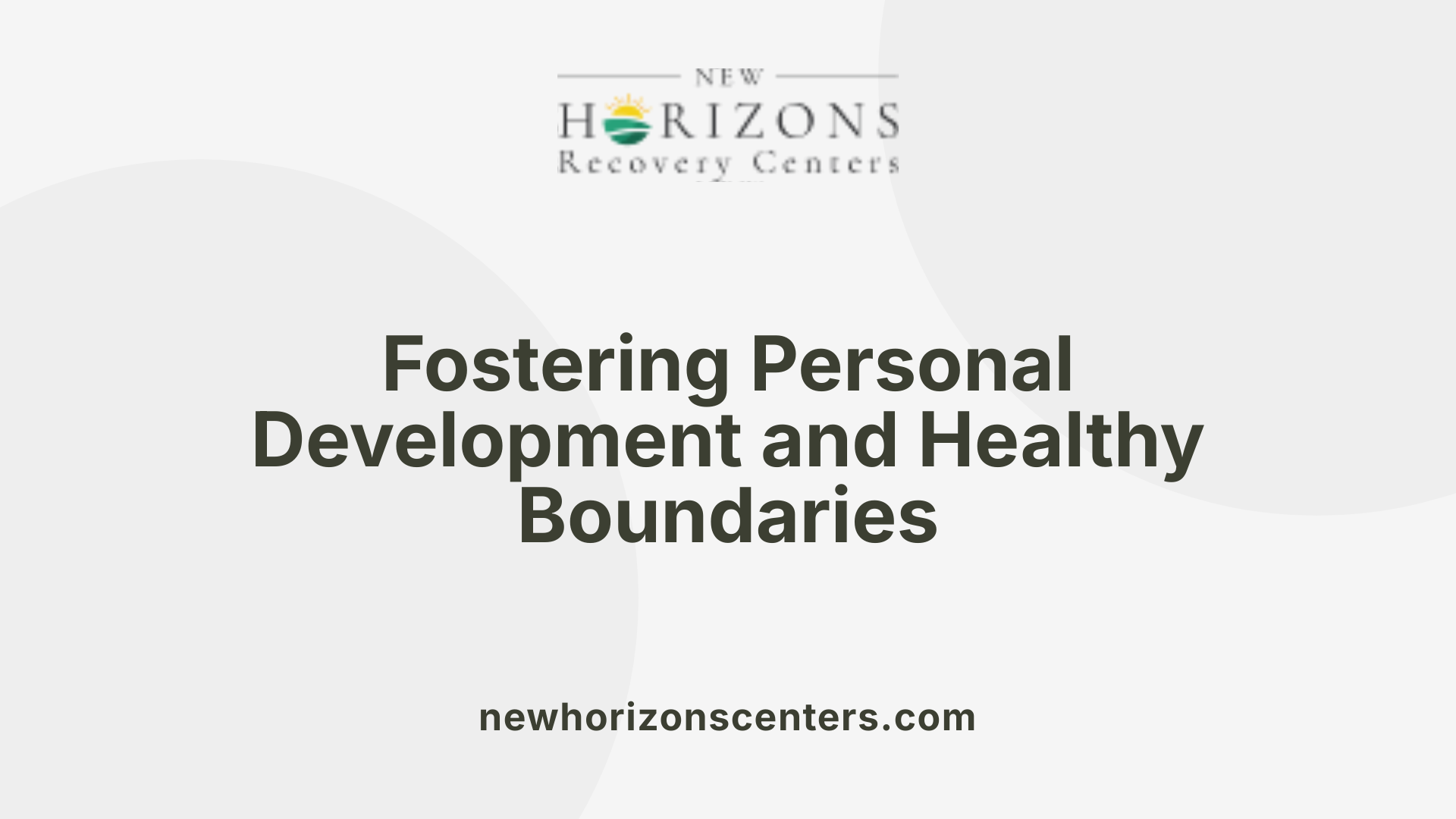
Developing Personal Growth
In the growth stage of recovery, individuals begin to harness their experiences for personal development. This phase typically spans from three to five years post-abstinence. Here, the primary focus shifts towards cultivating resilience and acquiring new life skills that aid in preventing relapse. People often work on identifying negative behavior patterns that once contributed to their addiction, learning instead to channel their energy into positive habits.
Establishing Healthy Boundaries
Furthermore, setting healthy boundaries becomes essential in this stage. As individuals reassess their relationships and social environments, they learn to articulate their needs and limits clearly. This practice not only protects their sobriety but also fosters healthier interactions with others. By contributing to others' recovery journeys, individuals reinforce their commitment to sobriety, creating a supportive community and enhancing their own personal growth.
| Growth Focus Areas | Description | Significance |
|---|---|---|
| Developing skills | Focus on life skills to prevent relapse | Empowers individuals in daily challenges |
| Identifying behavior patterns | Recognizing and changing negative patterns | Helps reshape identity away from addiction |
| Setting boundaries | Establishing limits in relationships | Protects sobriety and fosters healthy connections |
Models and Perspectives Shaping Recovery
Life Course Perspective
The Life Course Perspective emphasizes that the recovery journey is influenced by an individual's age and life stage. Younger adults often face unique challenges, such as less access to supportive recovery environments compared to older adults. This suggests that recovery needs evolve and must be tailored to the specific experiences and circumstances of different age groups, enhancing the relevance of recovery strategies across the lifespan.
Hierarchy of Needs Perspective
Informed by Maslow's framework, the Hierarchy of Needs Perspective posits that recovery requires attention to varying needs throughout the process. Initially, the focus is on basic needs like achieving abstinence and physical health. As individuals progress, the emphasis shifts towards personal growth and self-actualization, highlighting the importance of addressing emotional and psychological well-being for sustained recovery.
| Models of Recovery | Focus Areas | Key Insights |
|---|---|---|
| Life Course Perspective | Age-related challenges and recovery needs | Tailored support based on life stage |
| Hierarchy of Needs Perspective | Evolution of needs over time | Focus on basic to advanced personal growth |
Addressing Relapse and Relapse Prevention
Relapse is Common
Relapse is a common part of the recovery process, affecting many individuals working to overcome addiction. It is important to remember that experiencing a relapse does not signify failure. Instead, it should be viewed as an opportunity to reassess and modify treatment strategies. Understanding that recovery is often nonlinear helps reduce the stigma and shame that can accompany relapse. Recognizing triggers such as stress, social situations, or emotional distress can empower individuals to seek support and re-engage with their recovery plan.
Managing Relapse as Part of Recovery
Effective management of relapse involves creating a personalized aftercare plan that includes ongoing therapy, support groups, and coping strategies. This proactive approach helps build resilience against potential triggers. Learning to address underlying issues, like guilt or trauma, is essential for long-term recovery. Regularly engaging with recovery communities can provide accountability and encouragement, aiding in sustaining progress made during earlier recovery stages. Emphasizing continuous growth and connection with supportive peers is crucial in fostered resilience against relapse.
The Importance of Support Systems in Sustaining Recovery
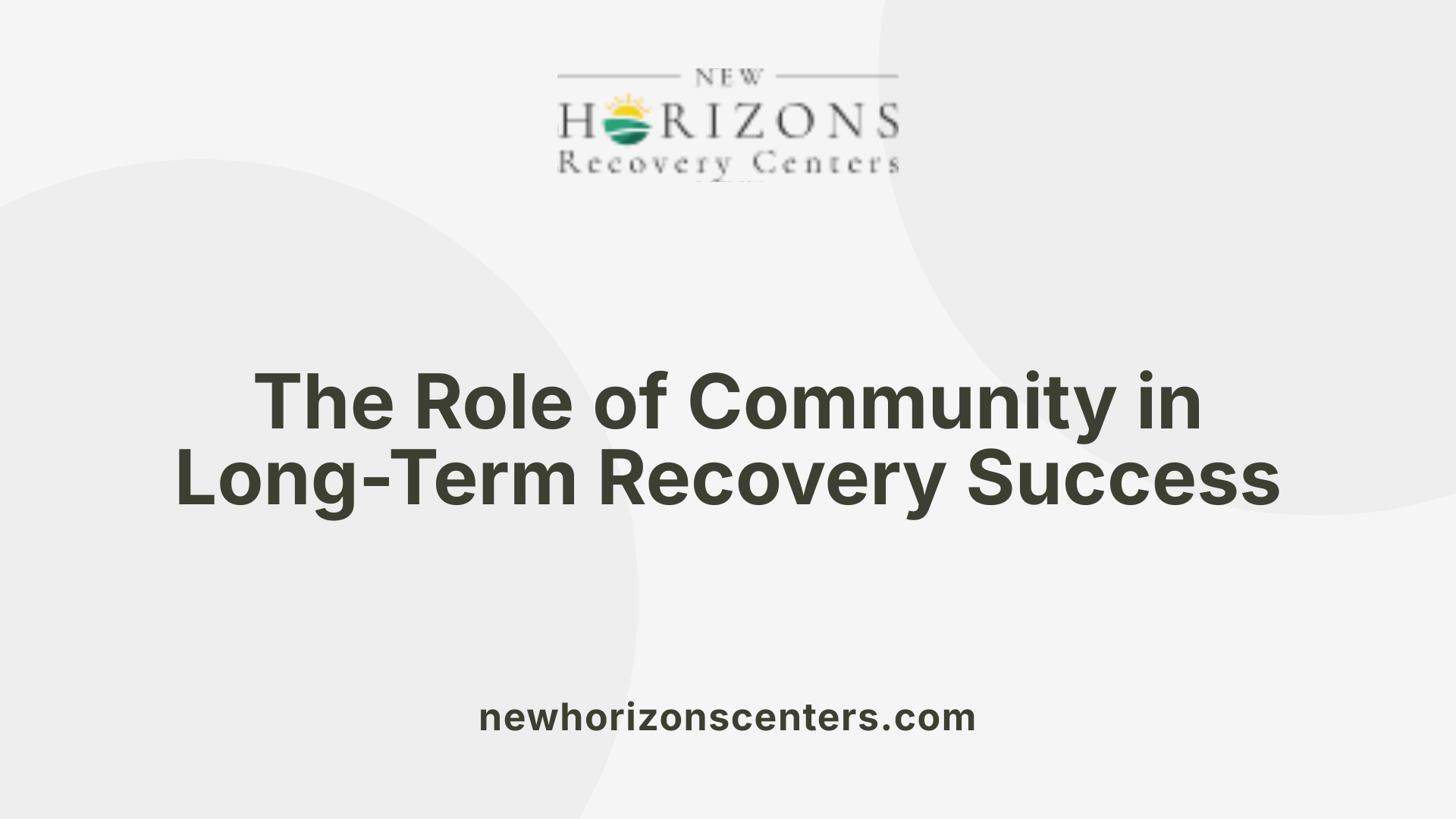
Participating in Support Groups
Support groups play a pivotal role in the recovery journey. These groups, such as Alcoholics Anonymous (AA) or Narcotics Anonymous (NA), create a community where individuals can share their experiences and struggles with addiction.
By participating in support groups, individuals gain valuable insights and encouragement from others facing similar challenges. This shared understanding fosters a sense of belonging and reduces feelings of isolation often encountered during recovery.
Aftercare Programs
Aftercare programs are essential for maintaining recovery after initial treatment. These programs may include continued therapy, group meetings, or workshops designed to address the ongoing challenges of sobriety.
Engaging in aftercare helps individuals refine coping skills, set new goals, and recognize relapse triggers in a supportive environment. This ongoing connection to resources is crucial, as it significantly lowers the likelihood of relapse by reinforcing positive behavioral changes established during treatment.
| Support System Type | Description | Key Benefits |
|---|---|---|
| Support Groups | Community-based groups where individuals share experiences | Reduced isolation, shared understanding |
| Aftercare Programs | Structured programs that provide ongoing support | Enhanced coping skills, relapse prevention |
Core Principles for a Successful Recovery Journey
What are the 5 Ps of successful recovery?
The 5 Ps of successful recovery are critical elements that guide individuals on their journey to overcoming addiction:
- Purpose: This serves as the primary motivation for change, driving individuals to seek a life free from addiction.
- Practice: Implementing new behaviors consistently reinforces the changes made during recovery. This can include coping strategies and healthy habits that aid in the transition.
- Perseverance: Recovery is a lifelong commitment. Acknowledging that there will be challenges fosters resilience and the capacity to bounce back from setbacks.
- Pray: For many, a spiritual connection provides strength and support in difficult moments. This can be a comforting aspect of the recovery process.
- Praise: Focusing on gratitude and celebrating small victories counteracts the negativity associated with addiction and promotes a positive outlook.
Importance of long-term support
Long-term support is essential for sustaining recovery. Engaging in community support groups, therapy, or sober groups helps individuals maintain connections with others who understand their struggles. These support systems provide accountability and encouragement, making it easier to navigate the inevitable ups and downs during the recovery journey. Ongoing education and reinforcement of coping skills also play a crucial role in preventing relapse, further solidifying the foundation for a healthier, addiction-free life.
Encapsulating the Recovery Journey
Recovery from addiction is multifaceted, involving a continuous process of personal growth and learning. By understanding the various stages and challenges, individuals can better prepare for the hurdles ahead, ensuring they have the necessary tools and support to navigate their path effectively. With strong support networks, structured guidance, and perseverance, a successful and fulfilling recovery is within reach.
References
- The Stages of Recovery | Addiction Counseling Programs TX
- Stages of Recovery
- What Are The 5 Stages of Recovery? - Addiction Help
- Your Guide to the Stages of Alcohol Recovery - Healthline
- 5 Stages of Treatment - Substance Abuse Treatment: Group Therapy
- Addiction Recovery Stages | Clear Behavioral Health
- Stages of Recovery - Royal Life Detox
- Overcoming Addiction: The 5 Stages of Recovery - Brookdale

-ink.jpeg)
-ink.jpeg)
-ink.jpeg)
-ink.jpeg)
-ink.jpeg)
-ink.jpeg)
